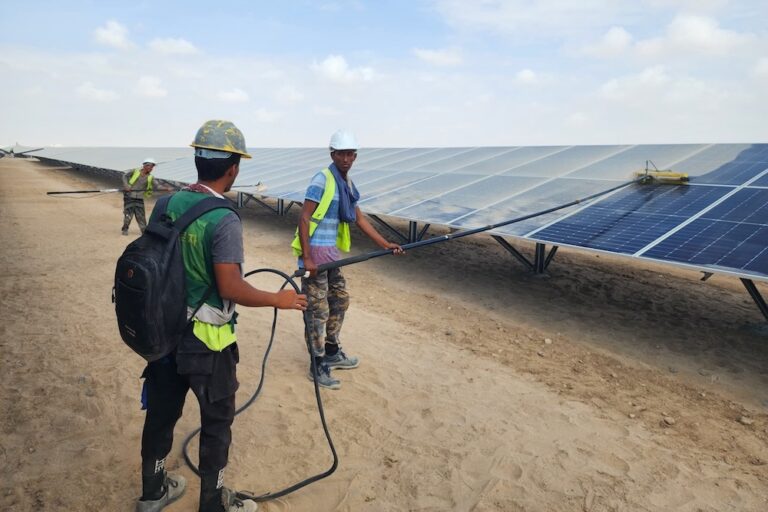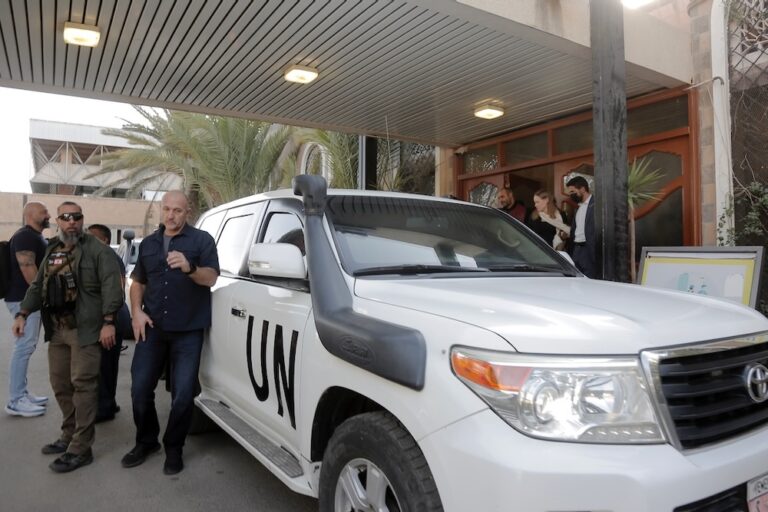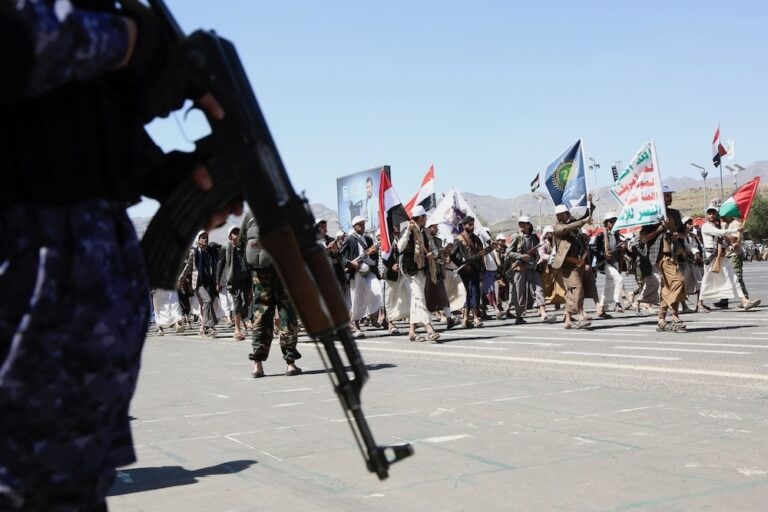Mohammed al Maqaleh was abducted by gunmen in the capital six months ago and has since been subjected to systematic abuse.
(IFJ/IFEX) – 11 March 2010 – The International Federation of Journalists (IFJ) has today accused the Yemeni authorities of “brutal inhumanity” in their treatment of a leading editor who has been subject to kidnapping, detention and denial of access to basic medical treatment for six months.
“The ordeal of Mohammed al Maqaleh is a scandalous story of neglect and brutal inhumanity,” said Aidan White, IFJ General Secretary. “We fully support our colleagues in Yemen who demand his immediate release and an end to all the violations of his rights.”
The IFJ is backing protest by the Yemeni Journalists Syndicate (YJS), an IFJ affiliate over the case and has written to the country’s President Ali Abdullah Saleh, calling for an investigation of how the authorities have handled this case and for those responsible for al Maqaleh’s maltreatment to be brought to justice.
Al Maqaleh is the editor for the opposition Socialist Party’s website, Al Eshteraki. He was kidnapped in September after the news site reported on Yemeni military air strikes targeting civilians in an incident that killed 87 people and injured more than a hundred.
He was snatched by gunmen on the streets of the capital Sana’a and since then has been subject to systematic abuse. For months security agencies as well as the Attorney General repeatedly denied knowledge of his fate, until official agencies revealed his abduction and transferred him to prison and to be charged with criminal charges on 30 January 2010.
The union says that during his disappearance he has been subjected to systematic psychological and physical abuse. He suffered three simulated executions, his captors fired guns close to him, he has been beaten, denied food and drink for days, and finally put blindfolded in a dark, secluded area outside the capital Sana’a.
In the letter to President Saleh, White and IFJ President Jim Boumelha accused the authorities of “bringing shame to the country” by a process of abuse that has also included psychological torture of his family who have been sent mixed messages about his fate by officials.
The IFJ says there have been dozens of instances in which plain clothes security officers have snatched journalists off the street. There have been many reports of severe beatings, sexual assaults, threats to family, whipping and other forms of violence used again prisoners and kidnap victims in Yemen. Mohamed al Maqaleh is the latest victim of such treatment.
The targeting of journalists and suppression of newspapers and web sites has taken place at a time when the government is anxious not to have critical coverage of the ongoing Sa’ada War.
The syndicate has announced plans to organise protest activities next Monday to coincide with the day of the Yemeni press. Protests will focus on the cases of Al-Maqaleh and Al-Yawm newspaper, and jailed journalists Fouad Rashid, Salah Al-Saqaladi as well as that of Al-Raboui, who was assassinated on 9 February.
The syndicate has been calling for the Attorney General to put a stop to the mistreatment of Al-Maqaleh and to allow him access to medication due to his deteriorating health. But court officials have continued his criminal prosecution, despite evidence of crimes of abduction and reliance on charges that the defence says are trumped up. A hearing last Saturday had to be postponed due to his failing health.
At the trial, prosecutors alleged in the indictment, that the arrest was ordered by them, while the Attorney General had assured the syndicate in the early days of the kidnapping of Al-Maqaleh that he did not issue any arrest warrant against him.
“The anger of Yemeni journalists at the treatment of Mohamed Al-Maqaleh and others is understandable,” said White. “Now the international community must raise their voices in this case to highlight the horrific abuse of journalists and intellectuals in the country.”


